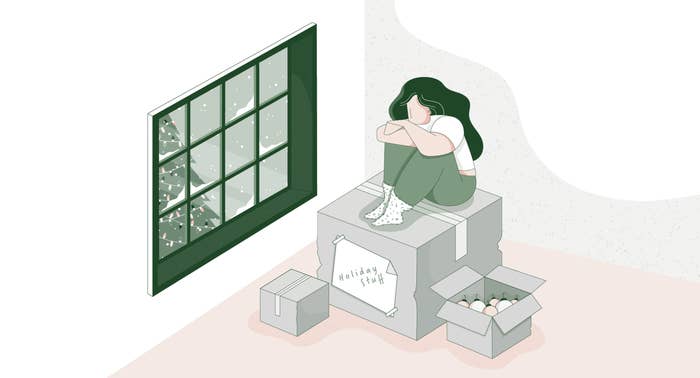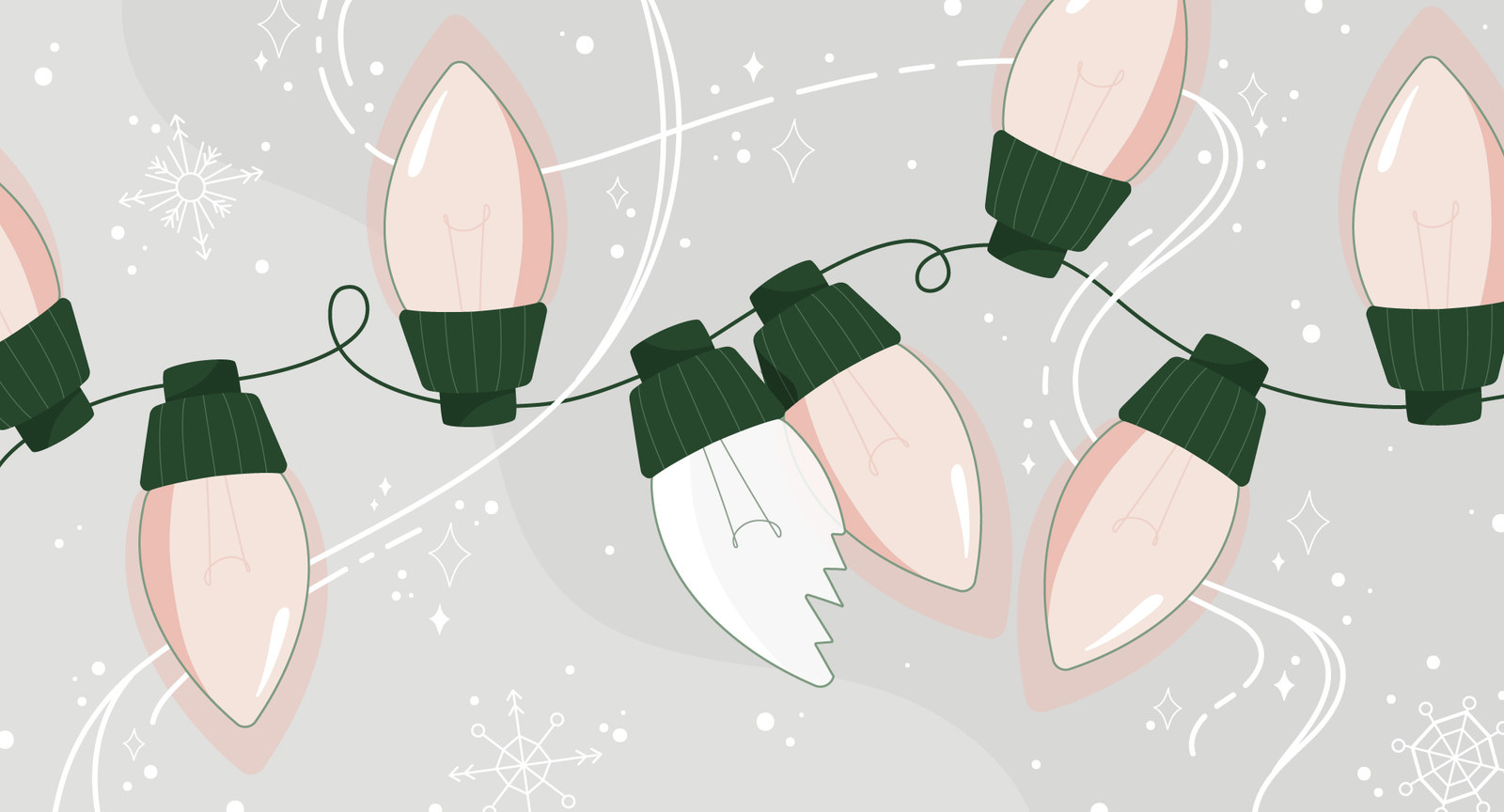
I recently asked a good friend about her holiday plans, and after a significant pause, she replied, “Sometimes I wish I could just skip it altogether.” She went on to explain that since her mother died of cancer, the holiday season just felt like too much.
Consequently, an onslaught of parties, travel galore, relentless family time, and forced cheer brought on feelings of sadness, guilt, anger, resentment, apathy and stress. So much for merry and bright, right?
But I know she’s not alone. Underneath all the cookies and carols and cheer, many of us experience years where everything is the worst — relationship conflict, family drama, mental health concerns, career detours, grief over loss of a loved one, illness, social anxiety, dealing with life in a racist patriarchy (the list goes on and on...) — and the holidays only amplify those difficulties.
So! Instead of simply sending ~good vibes~ from afar, here’s a quick list of dos and don’ts for being a friend during the holidays to people who’ve had a shitty year.
P.S. If you're the one who has had a shitty year, you may want to give this a read: 37 Holiday Self-Care Tips For Anyone Who Is Kind Of Not OK RN.
1. Do show up.
One of the very best things you can do to support a friend going through hard times? Show up, whether that involves sending a little text message or card, dropping food off, making a phone call, or sitting on the couch together watching Netflix. If your friend isn’t in the mood to talk, go anywhere, or do anything, and prefers to be left alone, let them know that’s okay, too.
“Showing up does not look like giving unsolicited advice, offering reasons why things are the way that they are or why it's all gonna be okay,” coach and activist Rachel Ricketts tells BuzzFeed. “Be present and check-in with them on a regular basis to try and ascertain what they’re feeling and what they need.”
2. Don’t try to fix it.
A common knee-jerk reaction to hearing about someone’s suffering is to take action, primarily because we want to do something as well as make that person feel better. However, your job as a friend isn’t to find a solution to the problem or issue at hand. It’s to listen — without trying to fix, troubleshoot, and offer suggestions. Otherwise, says psychotherapist Becky Howie, you risk looking like you’re trying to dismiss their pain, or indicating that you only want to be around them if they’ve got a happy face plastered on.
3. Do acknowledge the shittiness.
You might think you need to avoid sensitive subjects in order to protect your friend’s feelings, but Sherrie Dunlevy, author of How Can I Help? recommends the exact opposite. For instance, when you’re grieving the loss of a loved one, she notes, hearing their name can actually feel like a gift, which paves the way for sharing memories and strengthening connections. Or, simply acknowledge the fact that they’re having a bad year, as a way to help take the sting out of holiday glee, says therapist Jill Johnson-Young.
4. Don’t assume your friend will go full-on Grinch.
Holiday cheer could make them feel worse...but it might also make them feel normal. You can offer to come over and help decorate their place, watch cheesy Hallmark movies together, or show up as their work holiday party plus-one. And if your friend prefers to celebrate in a way that is less shiny and bright this year, support whatever they decide — whether it involves you or not.
Carole Brody Fleet, a writer whose husband died six days before Christmas, knows this firsthand. She didn’t feel like celebrating the holidays, but she did want to honor her loss in a quiet, non-overwhelming way. As a result, she and her family members picked specific activities that felt right to them. “We lit Hanukkah candles and recited prayers, but we did not attend the annual Hanukkah party at synagogue,” she tells BuzzFeed. “We took quiet walks around the neighborhood looking at decorations, but did not attend any holiday gatherings. When New Year’s Eve approached, the general manager of our favorite restaurant invited my daughter, my mother, and myself to enjoy a quiet dinner. These activities were perfect solutions: our holidays were observed, but the gaiety of the season was curtailed.”

5. Do keep an eye out for red flags.
If you notice your friend is posting a lot Instagram stories about getting blackout drunk, casually popping painkillers during dinner, sharing a lot of anxiety/loneliness/depression memes, or constantly joking-but-not-really about maxing out their credit card this month, speak up. “Don't be afraid to ask your friends tough questions,” Dr. Maria Shifrin, a New York City clinical psychologist, tells BuzzFeed. “Ask them if they are sad, if they are lonely, if they are angry, and even if they are considering suicide. Asking tough questions reduces shame and makes space for open dialogue.”
6. Don’t judge what your friend needs.
Maybe your friend wants to show up for social events, maintain their tradition of hosting a family meal, or vacation to a beach spot for a new experience. Don’t make assumptions about how they want to manage their holidays, and in the same vein, don’t judge what they choose to do.
“Allow them to set their guidelines for surviving the holidays,” says Dunlevy. “If they want to spend the time alone, allow them to do it. One friend told her family after her husband died, that she just wanted to go to a hotel for Christmas and come home when it was over. She needed to get through it the way she needed to get through it. They allowed her to do it and she felt so less stressed.”
7. Do prioritize small gestures.
Last year, I had a miscarriage around the holidays, and I still remember which friends made an extra effort to show love and support. It didn’t take much — literally, an Instagram direct message made me cry out of gratitude — because when you’re having a rough go, the little things go a long way in terms of making you feel less alone. I now make the same effort whenever I’m aware that a friend is struggling, even if it doesn’t feel like much.
“The first year after my husband left and I was on my own, one friend sent a big box with 25 gifts individually wrapped,” photographer Haverlee Coyler tells BuzzFeed. “It contained small, mostly cheap things that I got to open each day in December. Another group of friends came together and mailed a care package. What should have been the hardest month during the darkest year of my life ended up being full of joy, and I will never forget it.”
